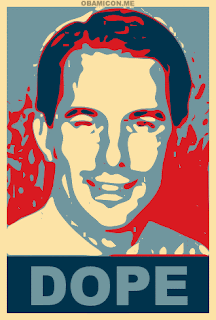 Ezra Klein completely bloodies Scott Walker's argument
Ezra Klein completely bloodies Scott Walker's argument in Wisconsin:
Of course, the fact that public-employee pensions didn't cause a meltdown at Lehman Brothers doesn't mean they're not stressing state budgets, and that the pensions they've been promised don't exceed what state budgets seem able to bear. But the buildup of global capital that overheated the American housing sector and got packaged into seemingly riskless financial products that then brought down Wall Street, paralyzing the economy, throwing millions out of work, and destroying the revenues from state income and sales taxes even as state residents needed more social services? The answer to that is not to end collective bargaining for (some) public employees. A plus B plus C does not equal what Gov. Scott Walker is attempting in Wisconsin.
In fact, it particularly doesn't work for what Walker is attempting in Wisconsin. The Badger State was actually in pretty good shape. It was supposed to end this budget cycle with about $120 million in the bank. Instead, it's facing a deficit. Why? I'll let the state's official fiscal scorekeeper explain (pdf):
More than half of the lower estimate ($117.2 million) is due to the impact of Special Session Senate Bill 2 (health savings accounts), Assembly Bill 3 (tax deductions/credits for relocated businesses), and Assembly Bill 7 (tax exclusion for new employees).
In English: The governor called a special session of the legislature and signed two business tax breaks and a conservative health-care policy experiment that lowers overall tax revenues (among other things). The new legislation was not offset, and it helped turn a surplus into a deficit [see update at end of post]. As Brian Beutler writes, "public workers are being asked to pick up the tab for this agenda."
But even that's not the full story here. Public employees aren't being asked to make a one-time payment into the state's coffers. Rather, Walker is proposing to sharply curtail their right to bargain collectively. A cyclical downturn that isn't their fault, plus an unexpected reversal in Wisconsin's budget picture that wasn't their doing, is being used to permanently end their ability to sit across the table from their employer and negotiate what their health insurance should look like.
That's how you keep a crisis from going to waste: You take a complicated problem that requires the apparent need for bold action and use it to achieve a longtime ideological objective. In this case, permanently weakening public-employee unions, a group much-loathed by Republicans in general and by the Republican legislators who have to battle them in elections in particular. And note that not all public-employee unions are covered by Walker's proposal: the more conservative public-safety unions -- notably police and firefighters, many of whom endorsed Walker -- are exempt.
If that doesn't convince you, I don't know what will. Let's be clear here, no one's saying it's out of bounds to ask unions to give something back in a deficit. The deficit isn't their doing, but they need to help fix the issue. Fine. That's not what Walker's after. He's after political victory, and that's it.
 Ezra Klein completely bloodies Scott Walker's argument in Wisconsin:
Ezra Klein completely bloodies Scott Walker's argument in Wisconsin:
No comments:
Post a Comment